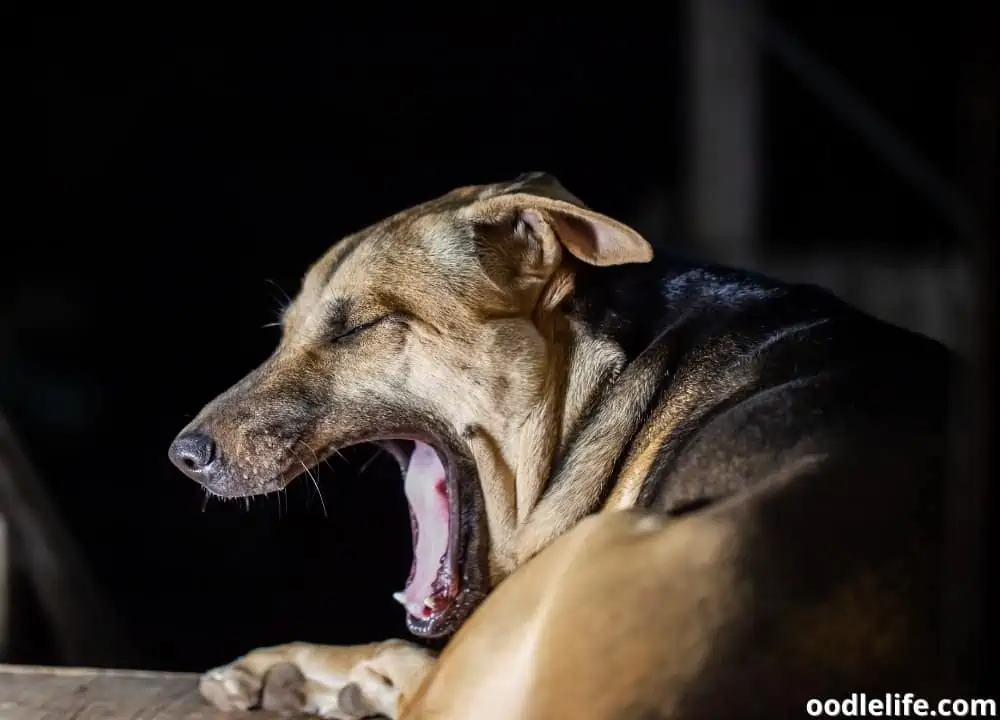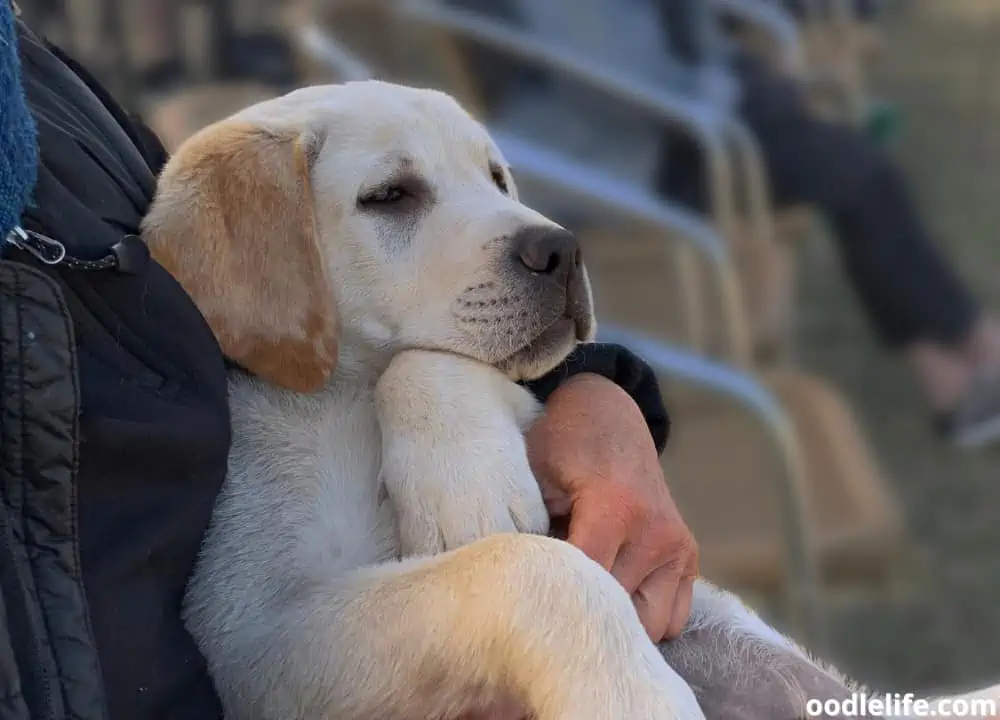Help! Dog Suddenly Waking Up In The Middle Of The Night To Poop
It can be incredibly frustrating or worrying if your dog suddenly has accidents in the middle of the night. You love your canine companion but want to sleep without worrying about your pup.
There are several reasons your dog may be waking up in the middle of the night to poop. Older dogs may have more accidents due to fecal incontinence, for example.
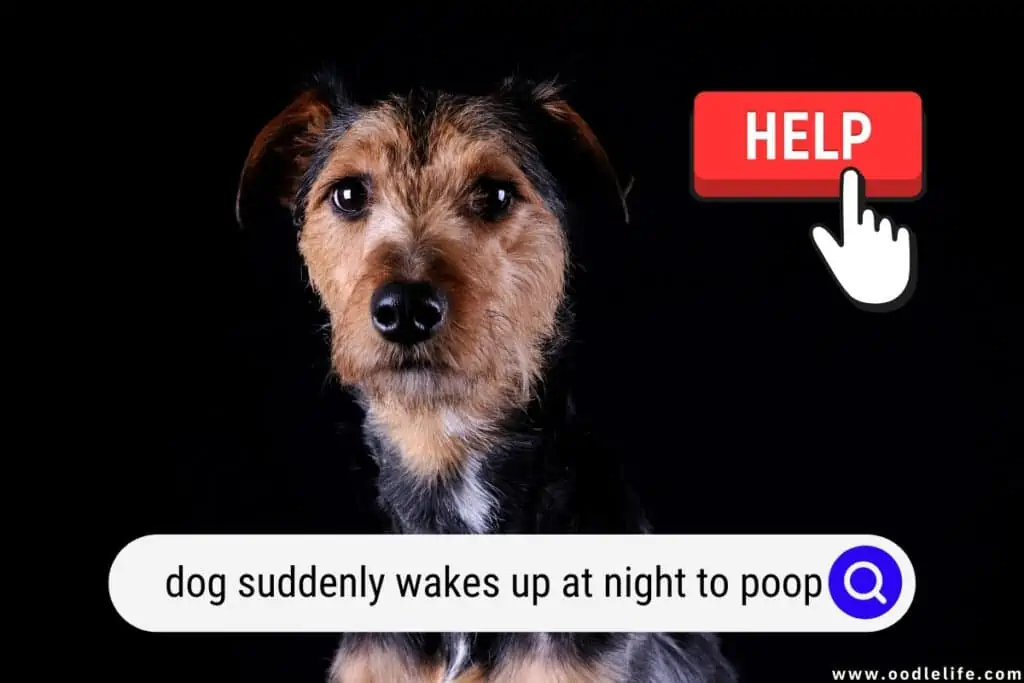
No matter its age, your dog may poop in the house due to illness, medical issues, or behavioral problems. To stop your dog from suddenly waking up in the middle of the night to poop, you need to identify the source of the problem.
Reasons Your Dog is Suddenly Waking Up in the Middle of the Night to Poop
Look at the following reasons your dog may be having accidents at night to help determine the root issue. Other clues such as whether the poo is a normal consistency, colour etc. can give us clues as to whether it’s due to a medical illness or a behavioural problem. Medical issues should be ruled out before concluding that it’s a behavioural issue.
Your Dog Has Anxiety
Dogs at any age can wake up suddenly with the urge to do their business. However, most of the time, your dog will attempt to wake you up so you can take them out.
Your pup may have separation anxiety, especially if it’s a new dog or a puppy. So, when they’re alone at night, they may get anxious and have an accident.
Once your new furry friend gets comfortable around you, fewer nighttime accidents should occur.
Some dogs may also poop inside if they feel stressed. Loud noises like fireworks or thunderstorms may trigger anxiety in your dog, causing it to poop.
If you’ve been having a nightly series of storms with thunder or a celebration with fireworks booming in the sky, your dog will likely return to normal once it’s quiet again.
If you suspect your dog has separation anxiety, it may help to work with a behavioral trainer. For predictable dog anxiety-inducing events, your vet may prescribe anti-anxiety medication to help calm your pup’s nerves.
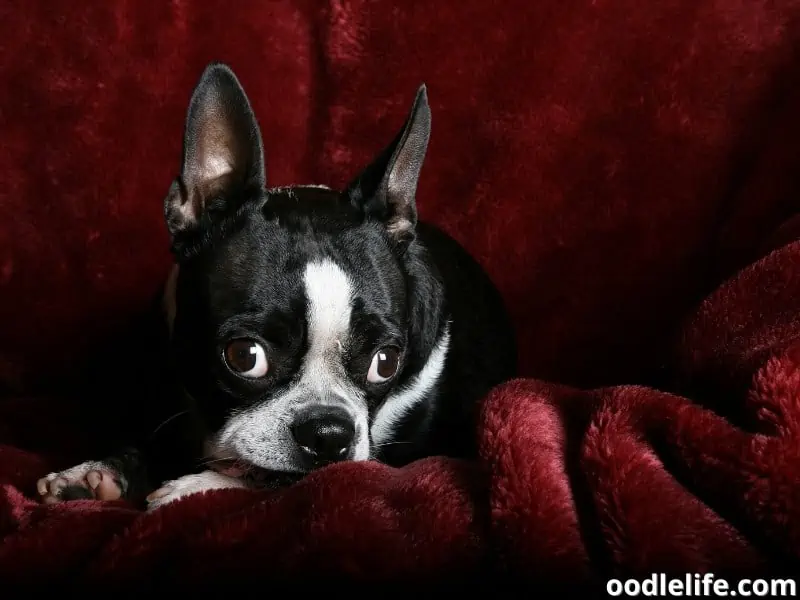
Your Dog Needs House Training
If you have a younger dog, it may still be getting used to going outside for bowel movements. Perhaps you’re already working on house training your puppy, and it hasn’t gotten the hang of it yet.
Dogs you’ve had for a while without any issues may need a retraining session.
Try attaching a bell to the doorknob and teach your dog that it needs to go outside when you ring the bell. When you take your dog out, give it a jingle, so it associates the bell with doing its outdoor business.
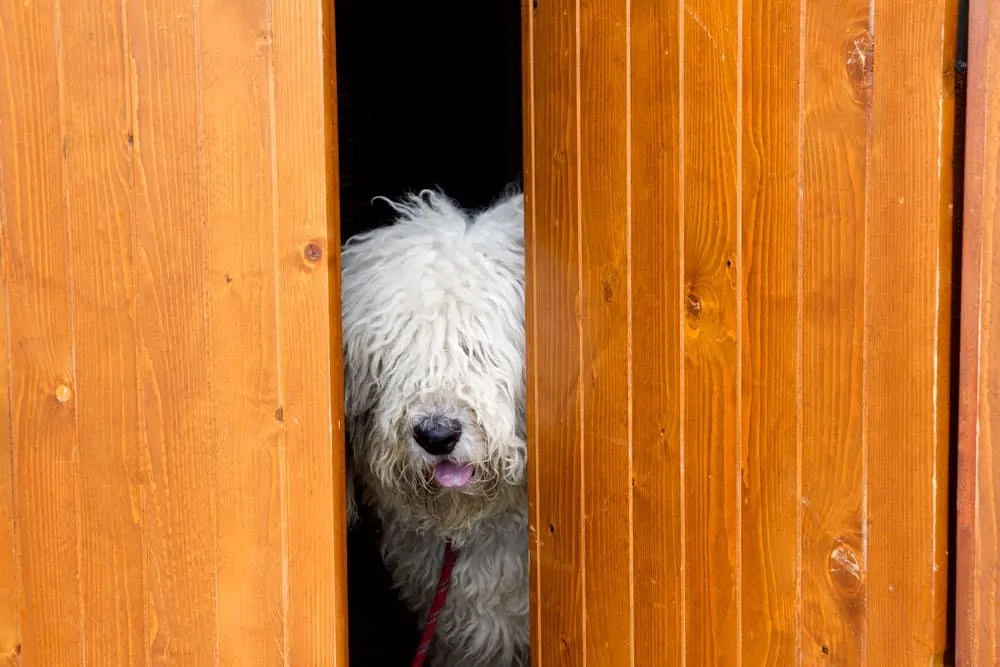
Medical Issues
Your dog may have a medical issue, like an infection, causing it to poop at night. Scheduling an appointment with a veterinarian to discuss symptoms, like nighttime bowel movements, can help answer your questions.
Pay attention to your dog’s bowel movements. Here is what to look for:
- Stool frequency
- Stool consistency (Is it formed? Soft? Bloody? Mucusy?)
- Control your dog has over bowel movements
- If your dog appears to be in pain while passing stool
- Is your dog otherwise well? Eating and drinking normally? Energy normal?
Dogs who have recently had surgery or another medical procedure are susceptible to infection. Pay extra attention to your pup’s bowel movements while healing from the procedure.
If you notice any changes to your dog’s stool at any time, contact your vet.
Illness or Disease
If your dog is suddenly pooping in the middle of the night, your pup may have an illness or disease. Inflammatory bowel disease (IBD), for example, can cause your dog to have less control of when it goes to the bathroom.
If you take your dog out regularly during the day, it’s possible it only has accidents at night since it’s been a while since it’s been out.
So, even if your dog is only having accidents at night, it’s still best to have a veterinarian examine your dog to determine the source of the issue before concluding it is due to a behavioural problem.
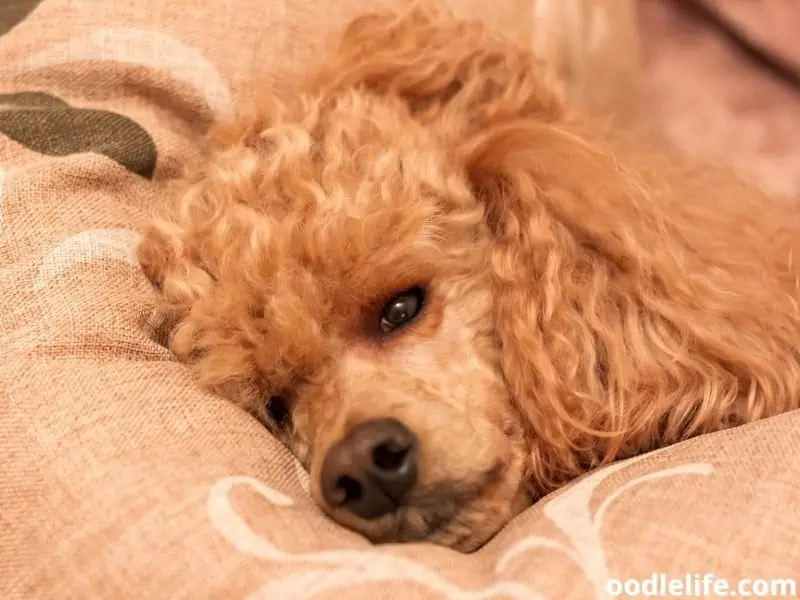
Physical Limitations in Older Dogs
Older dogs have bodies that don’t work as well as they used to, which can lead to many issues. Some elderly dogs have arthritis or other joint problems, making going to the bathroom more challenging.
Canine ‘Alzheimer’s’ (also known as canine cognitive dysfunction) may cause your dog to forget its potty training or disorient it to where it doesn’t know where it is pooping. Speak to your vet about strategies to reduce the symptoms of arthritis or ‘alzheimer’s’.
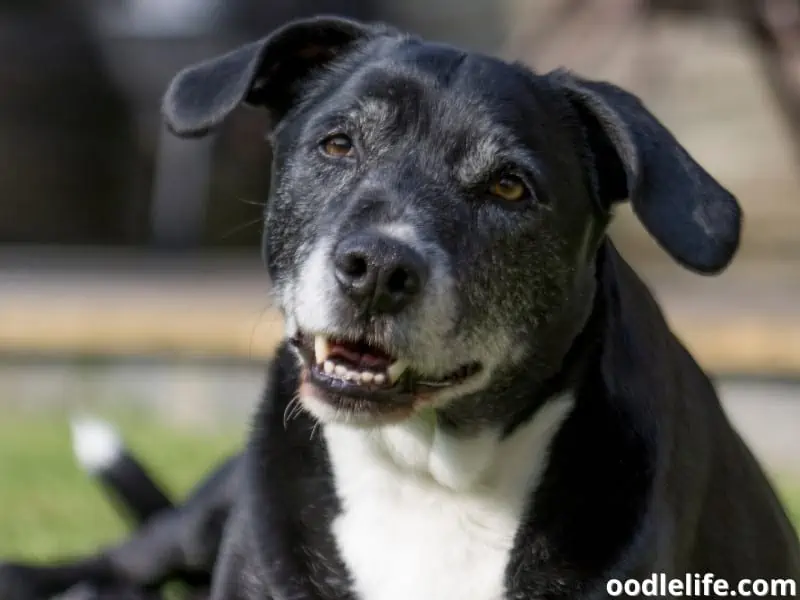
How to Stop Your Dog From Pooping At Night?
Whether your pup is having nighttime accidents due to anxiety, medical issues, or old age, you can do a few things to prevent it from suddenly waking up in the middle of the night to poop.
Avoid Feeding Your Dog Late at Night
If your dog eats a meal before bed, the food may be digested and ready to poop while you’re asleep. You can always take your pup out for a toilet break right before bed time.
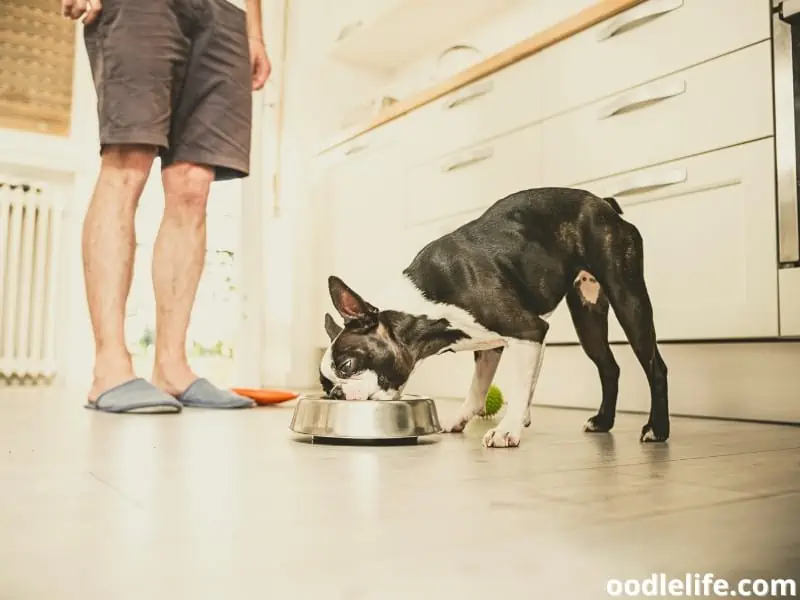
Identify Any Other Symptoms
Your dog may exhibit signs and symptoms if there is a more serious issue that is causing your dog to suddenly poop in the middle of the night.
Signs and symptoms may include:
- Scooting on floor
- Bloated abdomen
- Pain to the touch near their tail
- Pooping inside during the day
- Loose or bloody stools
- Painful bowel movements
- Lethargy
- Loss of appetite
Re-Teach Potty Training
It’s easy to forget our cute and cuddly dogs are wild animals, on the inside at least. Your pup doesn’t instinctively know to do its business outdoors.
Solving the midnight bathroom runs issue may be as simple as going back to the basics and reminding your dogs that they can’t go to the bathroom indoors.
If you recently moved, your dog may not yet understand the new layout or routines.
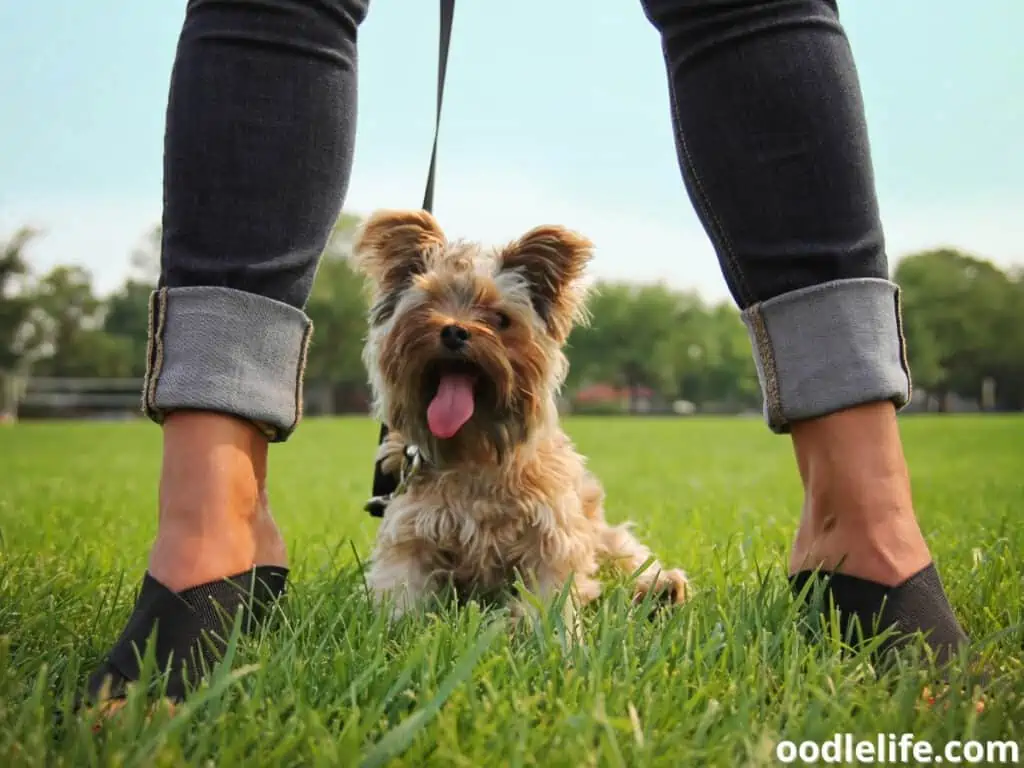
Take Extra Walks During the Day
Extra walks during the day can be beneficial to your dog in several ways. Not only do dogs need the opportunity to go to the bathroom, but they also need the proper exercise for their weight and breed.
The walking movement helps with your dog’s digestion and bowel movements. Additionally, the exercise can cause your dog to be tired enough to sleep through the night.
If your dog isn’t a fan of rainy weather, make your outdoor trips quick enough to use the bathroom. Then, play with your dog to release excess energy once inside.
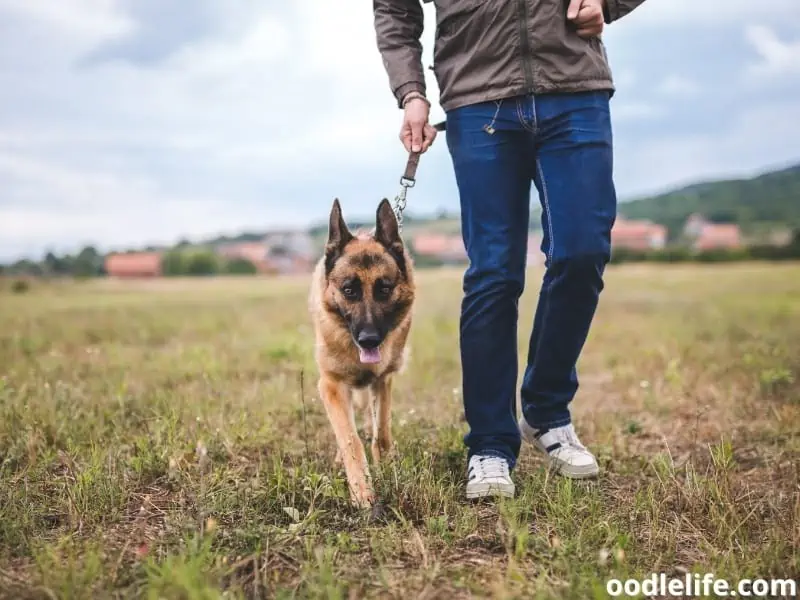
Be Patient and Calm
We know it can be frustrating when your dog is pooping at night. On top of the inconvenience, you may get less sleep and feel cranky.
Do your best to stay calm with your dog. If you create a sense of fear for your pup, it may feel ashamed and attempt to hide its accidents.
No matter what the issue causing the nighttime bowel movements is, it won’t be solved by anger or yelling at your dog.
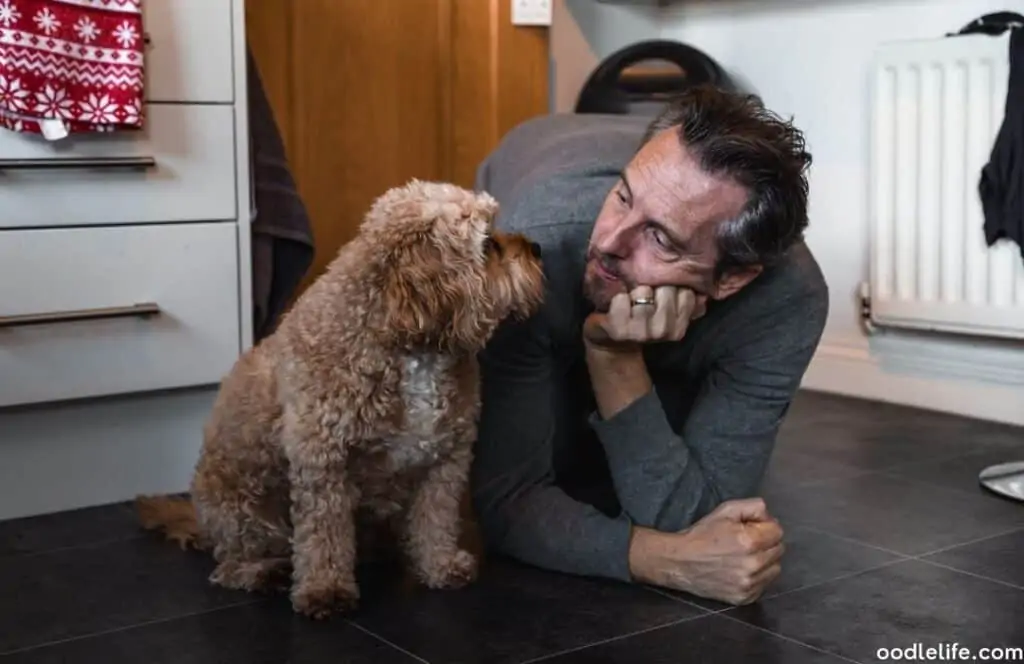
Place Potty Pads Inside
While this may not be the ideal solution, potty pads can make clean-up easier while you determine what the issue is. Although unless your pup has been trained to use potty pads, they may not instinctively realize what the pads are for.
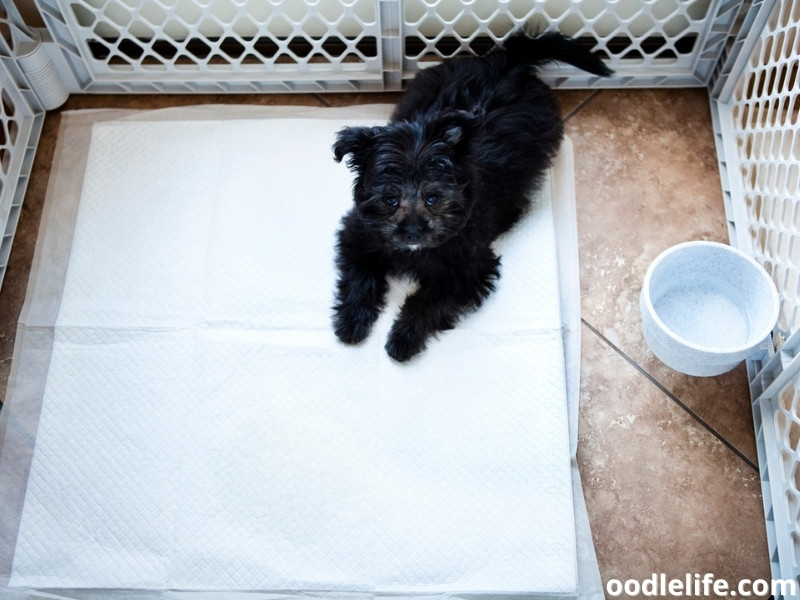
Dog Pooping in the House FAQ
How to stop a dog from pooping at night?
Stopping a dog from pooping at night involves a combination of consistent training, adjustments in feeding schedules, and understanding the dog’s behavior. Here are some steps to consider:
- Adjust Feeding Schedule: Feed your dog earlier in the evening. This allows time for digestion and an opportunity for them to eliminate before bedtime.
- Last Potty Break: Ensure you take your dog out for a last bathroom break just before you go to bed. This can reduce the likelihood of nighttime accidents.
- Consistent Schedule: Dogs thrive on routine. Ensure that meals, walks, and bedtime are at consistent times each day.
- Limit Water Intake Before Bed: Limiting the amount of water your dog drinks in the late evening can reduce the need for nighttime bathroom breaks. However, always ensure your dog has access to fresh water during the day and is adequately hydrated.
- Check for Medical Issues: If nighttime pooping is a new behavior, consult a veterinarian. The dog could have a medical issue affecting its digestion or bowel control.
- Training: If your dog is young or not yet house-trained, it’s essential to reinforce good behaviors with praise and possibly treats when they poop outside.
How to stop a dog from pooping in the house at night?
In addition to the above steps:
- Confinement: Consider crate training or confining the dog to a smaller space during the night, like a laundry room. Often, dogs don’t like to soil their sleeping areas.
- Clean Accidents Properly: Ensure you clean any indoor accidents with an enzymatic cleaner. This removes the scent and reduces the likelihood of the dog being attracted to the same spot again.
- Monitor Diet: Ensure your dog is on a balanced diet. Sometimes, dietary indiscretions or sudden changes in food can cause digestive upset.
Why has my dog started pooping in the house at night?
Several reasons could lead to this behavior:
- Medical Issues: Conditions like gastrointestinal upsets, infections, or age-related issues can cause sudden changes in a dog’s elimination habits.
- Dietary Changes: A sudden change in food, or eating something they shouldn’t have, can lead to nighttime accidents.
- Stress or Anxiety: Changes in the environment, new people or pets, or changes in routine can cause stress, leading to accidents.
- Age: Senior dogs can sometimes develop incontinence or might not be able to hold their bowels for as long as they used to.
- Lack of Access: If a dog doesn’t have easy access to go outside, they might be forced to eliminate indoors.
Why does my dog only poop at night?
If your dog is primarily pooping at night:
- Feeding Schedule: Check when you’re feeding your dog. If it’s late in the evening, this might be syncing with their digestive cycle.
- Habit: Dogs can develop habits or routines based on their environment or experiences. It might have just become routine for your dog to eliminate at night.
- Less Distraction: Some dogs might find nighttime or early morning hours quieter and more comfortable to do their business, especially if they’re anxious or easily distracted during the day.
- Medical Issues: There could be underlying medical reasons. If it’s a concern or a sudden change in behavior, always consult with a veterinarian.
Remember, patience, consistency, and understanding are crucial. If you’re concerned about any sudden or prolonged changes in your dog’s behavior, it’s always a good idea to consult with a veterinarian or a dog behaviorist.
Final Thoughts
Dogs of all ages can start having nighttime accidents for several reasons. The leading causes of dogs pooping at night are anxiety, potty training issues, illness or disease, and physical limitations.
To rule out any behavioral or medical issues, make sure your dog gets plenty of exercise, is eating the proper amount of food, and isn’t eating late at night. Consult a vet if the problem continues.
Pay attention to any symptoms or changes in bowel movements and tell your vet anything different you notice.
Giving the veterinarian as much information as possible can help them to determine the best course of action. While figuring out the underlying issue, always be calm and patient with your dog.
